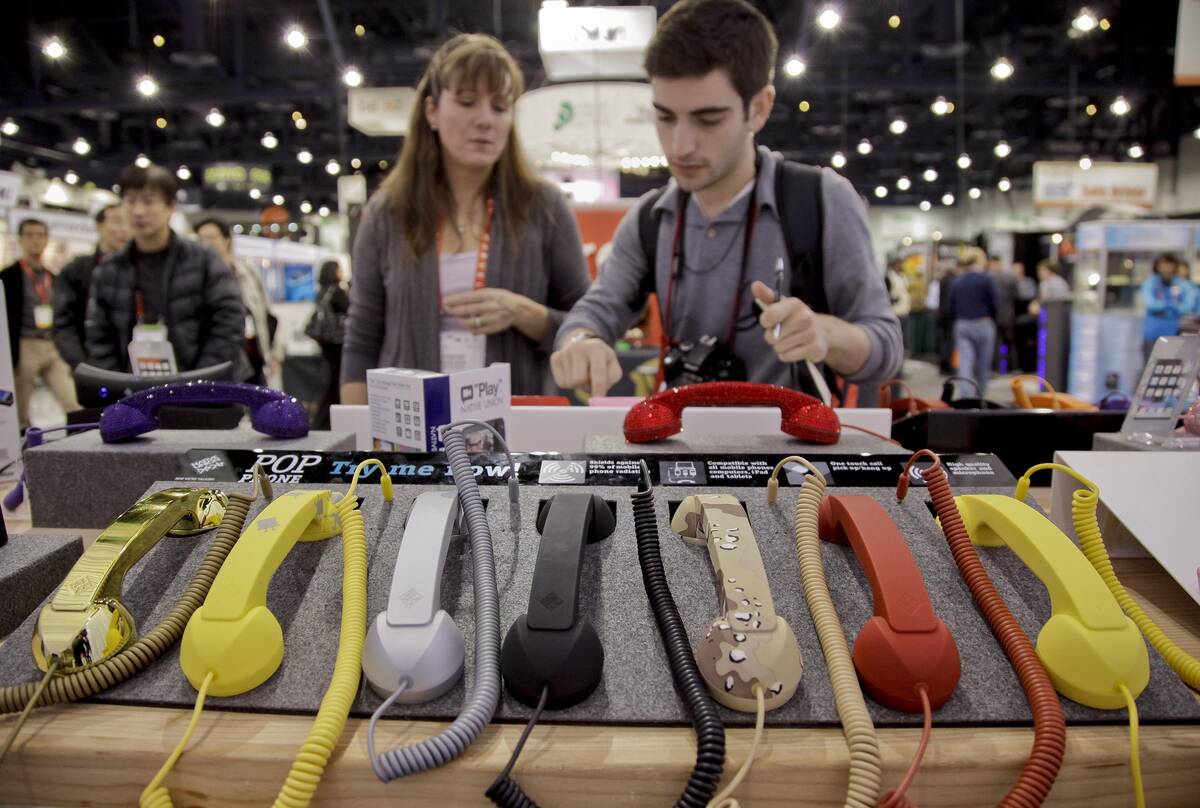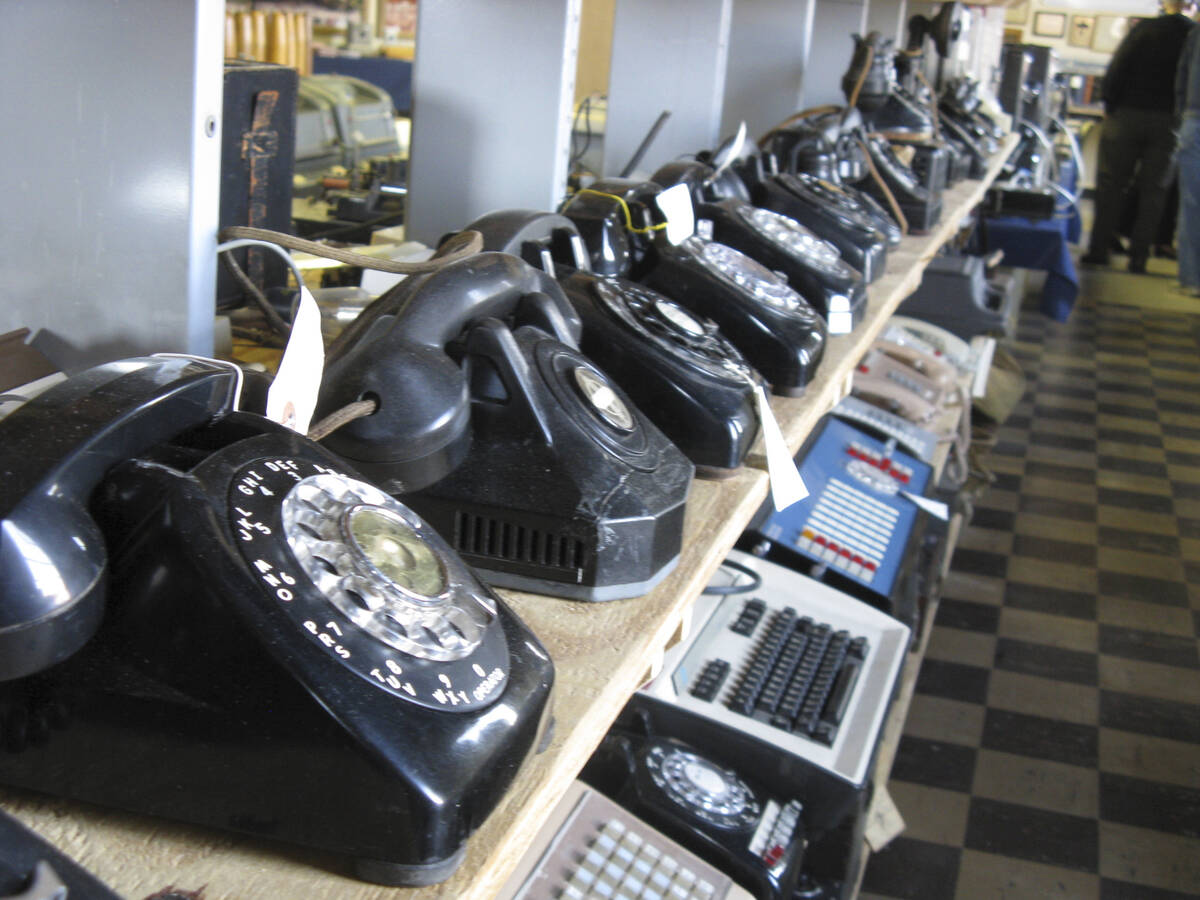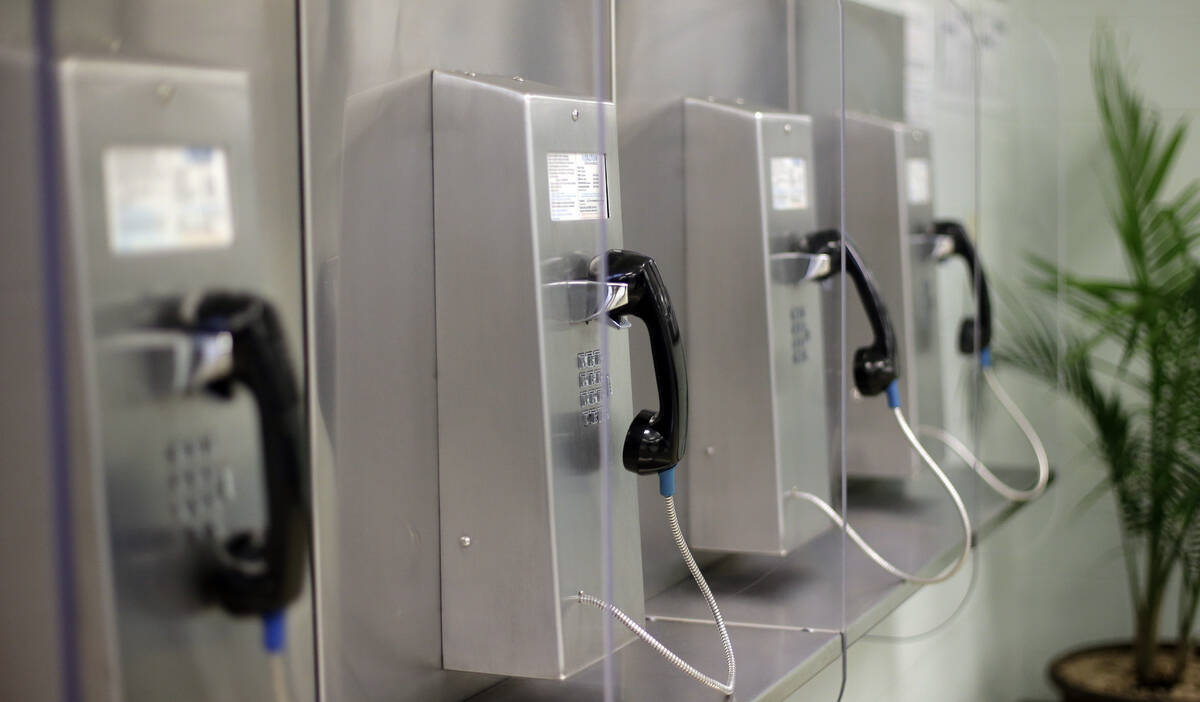This week’s cellphone outage makes it clear: In US, landlines are rare
NEW YORK — When her cellphone’s service went down this week because of an AT&T network outage, Bernice Hudson didn’t panic. She just called the people she wanted to talk to the old-fashioned way — on her landline telephone, the kind she grew up with and refuses to get rid of even though she has a mobile phone.
“Don’t get me wrong, I like cellphones,” the 69-year-old Alexandria, Virginia, resident said Thursday, the day of the outage. “But I’m still old school.”
Having a working landline puts her in select company. In an increasingly digital United States, they’re more and more a remnant of a time gone by, an anachronism of a now-unfathomable era when leaving your house meant being unavailable to callers.
Though as Thursday’s outage shows, sometimes they can come in handy. They were suggested as part of the alternatives when people’s cellphones weren’t working. The San Francisco Fire Department, for example, said on social media that people unable to get through to 911 on their mobile devices because of the outage should try using landlines.
In the United States in 2024, that’s definitely the exception.
TRACKING THE DISAPPEARANCE OF THE CORD
According to the most recent estimates from the National Center for Health Statistics, about 73 percent of American adults in 2022 lived in households where there were only wireless phones and no landlines, while another 25 percent were in households with both. Barely over 1 percent had only landlines.
Contrast that to estimates from early 2003, where fewer than 3 percent of adults lived in wireless-only households, and at least 95 percent lived in homes with landlines, which have been around since Alexander Graham Bell invented the telephone in 1876.
Twenty years ago, landline phone service was the “bread and butter” for phone companies, said Michael Hodel, a stock analyst at Morningstar Research Services LLC who follows the telecom industry. Now, he said, “it’s become an afterthought,” replaced by services like broadband internet access and its multiple ways of making voice contact with others.
In today’s United States, landlines have practically reached the status of urban legend in a nation where connecting over mobiles with the people you want — at the exact moments you want, on the precise platforms you prefer — feels fundamental enough to be a Constitutional right.
Among most age groups, the large majority were wireless-only, except for those 65 and older, the only group where less than half were estimated to only use cellphones.
They’re people like Rebecca Whittier, 74, of Penacook, New Hampshire. She has both types of lines but prefers to use a landline. She only got a basic cellphone in case of emergencies when she was away from home.
“I guess you’d call me old fashioned,” she said. “I’m not good with computers or electronics. So a landline’s good.”
HOW AND WHEN DID THE SHIFT HAPPEN?
What drove the change? It was that shift from telephones being mainly for voice communication to becoming tiny, data-saturated computers that were carried around in our pockets, Hodel says.
Of particular significance: the introduction of Apple’s first iPhone in 2007. The rise of the smartphone fundamentally changed people’s relationships with the devices in their pockets. “I do think that was the big watershed moment was when smartphone adoption really started to take off,” Hodel said.
The introduction of a new technology into society has a blowback effect on the ones it is supplanting, said Brian Ott, a professor of communication and media at Missouri State University.
“Basically, the new technology trains us to alter our use of the old technology,” Ott said. “So even though the old technology hasn’t gone away, the logic of mobile telephony exists across our entire society today, even for people who still have landlines.”
But the sometimes headlong rush to adopt new technologies can have its own problems, he said: “Anytime a new technology is introduced, there’s sort of a rapid adoption period before we understand the consequences.”
The outage, he says, is a case in point. Even though it was resolved quickly, it raises questions about what would happen if a broader-scale event disrupted cellphones more widely in a world where landline phones are no longer as ubiquitous.
Hodel was skeptical, though, at the notion that people would be unsettled enough to bring landlines and additional phone bills back into their lives.
“Unless you really are faced with something dire, the odds of you actually being concerned enough to go out and do something about it that’s going to cost you some amount of money seems to be pretty low,” he said. “The service that we get where we’re connected the vast majority of the time, if not all the time, has been sufficient to keep people satisfied by and large.”
If nothing else, the outage made Mary Minshew of Bethesda, Maryland, who is in her 40s, feel better about the landline she and her husband have so far not gotten around to scrapping. They don’t use it; they and their children all have cellphones. And if it actually rings, she figures it’s a scam or sales call and doesn’t answer.
But, she said, part of holding onto it was “out of this concern that you should always have a landline if something like this would ever happen. I mean, it’s rare. But something like that did happen.”



















